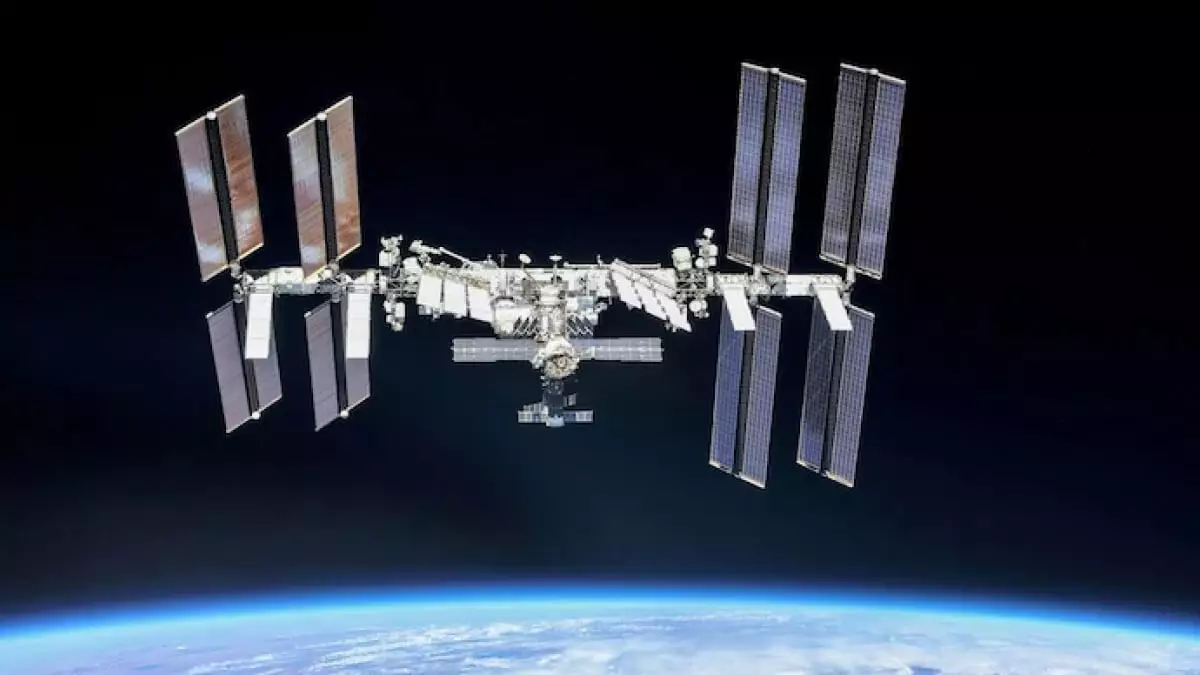On November 23, 2023, the International Space Station (ISS) crew found themselves confronted with an unexpected incident that stirred concern and caution aboard the orbiting research laboratory. As they opened the hatch to the newly docked Russian Progress MS-29 cargo spacecraft, they were met with an unusual odor. This unsettling discovery demanded immediate attention and the initiation of decontamination protocols. The incident was shared on social media via the ISS’s official Twitter account, alerting the world to this curious occurrence.
Upon docking with the ISS’s Poisk module, the Progress MS-29 spacecraft exhibited a notable issue—an odor described by NASA astronaut Don Pettit as reminiscent of spray paint. This description underscores not only the perplexity but also the potential hazard associated with the smell. Initial observations hinted at possible contamination within the Russian segment of the ISS, prompting a swift and robust response from the crew. Safety measures were enacted, including closing off the affected area to prevent any spread of potential contaminants.
NASA and Roscosmos, the Russian space agency, took action by activating their respective air purification systems. The American side utilized its Trace Contaminant Control Subassembly (TCCS), while the Russian segment initiated additional filtration mechanisms to restore a breathable atmosphere. Crew members were outfitted with personal protective equipment (PPE) as an extra layer of safety. The situation exemplified the meticulous nature of space operations and the immediacy with which astronauts must respond to unanticipated challenges.
Continuous monitoring of the air quality onboard the ISS was crucial during this incident. Flight controllers worked diligently on November 24 to assure that the station’s air quality returned to acceptable levels, allowing the crew to safely reopen the hatch between the Poisk and Progress modules. This swift resolution speaks volumes about the efficiency of systems in place designed to safeguard astronauts from any environmental threats in the vacuum of space.
While the source of the odor is still under investigation, officials have expressed that there are no immediate safety concerns for the crew. NASA and Roscosmos have allayed fears and confirmed that operations aboard the ISS would proceed without disruption. The Progress MS-29, part of a regular resupply mission, had launched just days earlier from the Baikonur Cosmodrome, carrying vital supplies for the astronauts, including food and fuel, essential for their prolonged stay in orbit.
The swift response to the odor incident aboard the ISS highlights the extensive safety protocols that govern space missions. As astronauts continue their essential work in an environment far more complex than our own, the lessons learned from such occurrences will undoubtedly contribute to the evolution of safety measures in future missions. Fortunately, for this crew, the situation was resolved without major complications, and they remain dedicated to their scientific endeavors as they explore and study the cosmos. The investigation into the odor’s origins will continue, ensuring that the ISS remains a safe haven for the brave men and women working in the frontier of space.

Leave a Reply